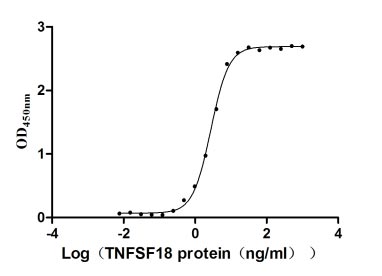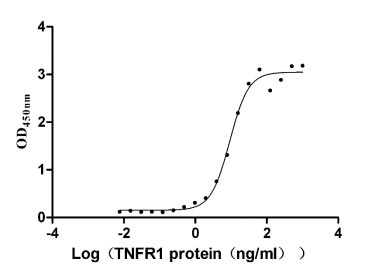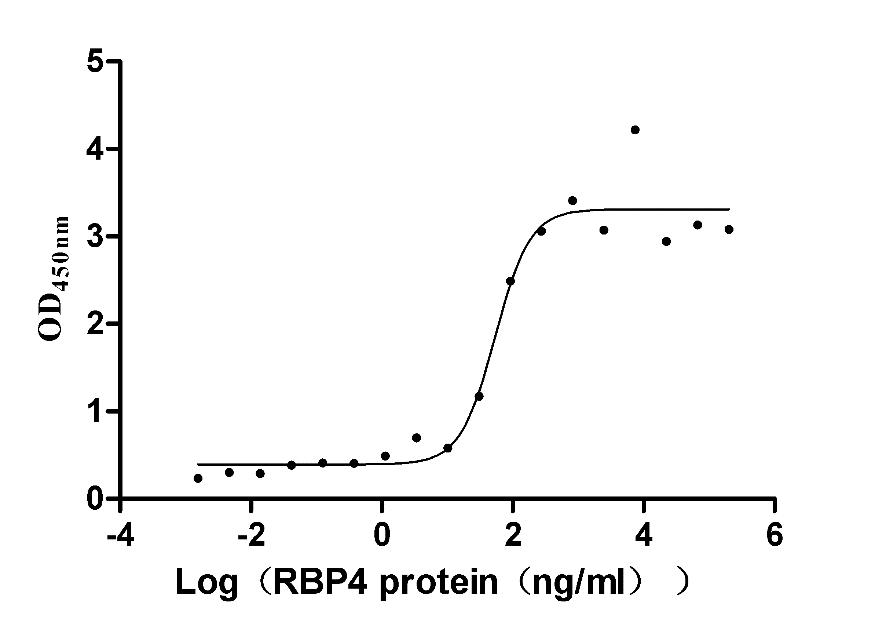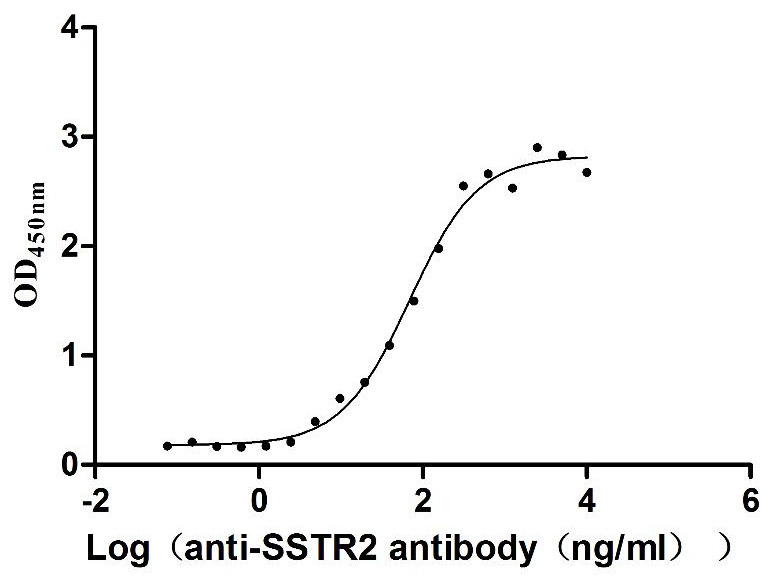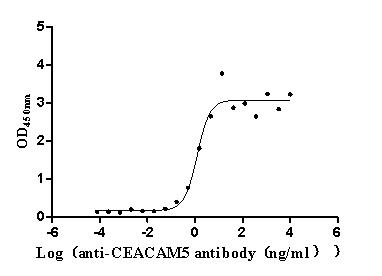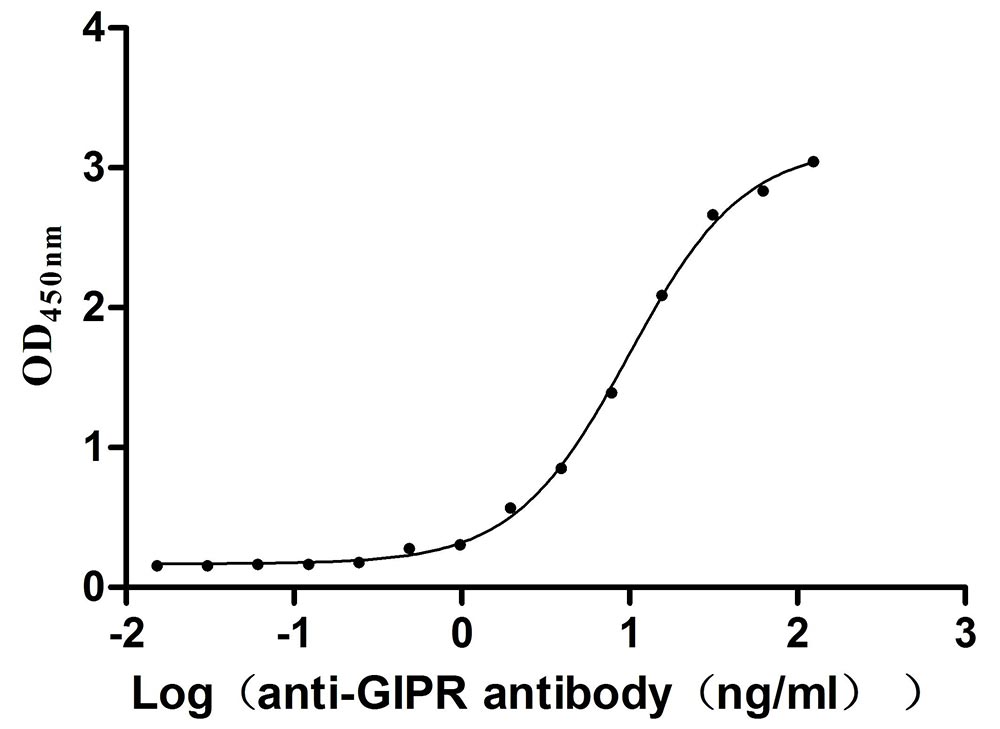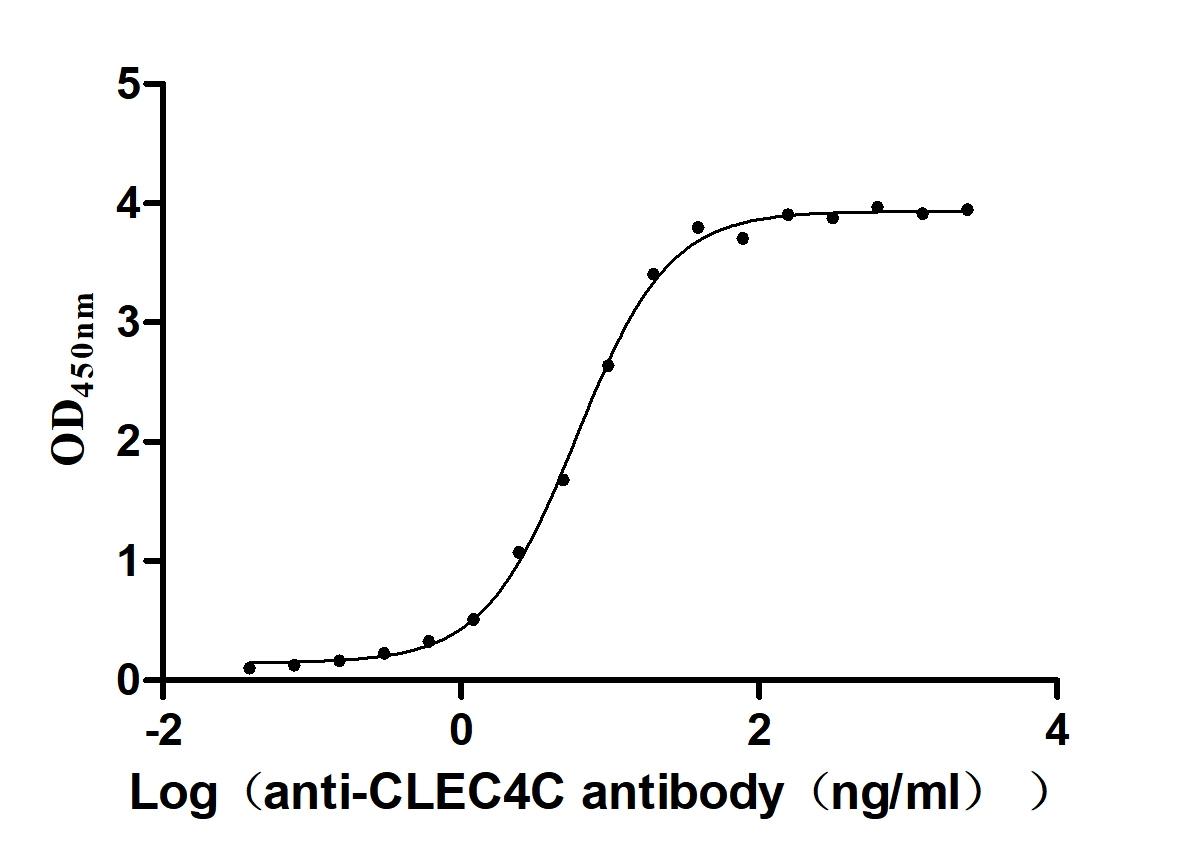Recombinant Human Serglycin (SRGN)
-
货号:CSB-YP022664HU
-
规格:
-
来源:Yeast
-
其他:
-
货号:CSB-EP022664HU
-
规格:
-
来源:E.coli
-
其他:
-
货号:CSB-EP022664HU-B
-
规格:
-
来源:E.coli
-
共轭:Avi-tag Biotinylated
E. coli biotin ligase (BirA) is highly specific in covalently attaching biotin to the 15 amino acid AviTag peptide. This recombinant protein was biotinylated in vivo by AviTag-BirA technology, which method is BriA catalyzes amide linkage between the biotin and the specific lysine of the AviTag.
-
其他:
-
货号:CSB-BP022664HU
-
规格:
-
来源:Baculovirus
-
其他:
-
货号:CSB-MP022664HU
-
规格:
-
来源:Mammalian cell
-
其他:
产品详情
-
纯度:>85% (SDS-PAGE)
-
基因名:SRGN
-
Uniprot No.:
-
别名:Chondroitin sulfate proteoglycan core protein; Cytolytic granule proteoglycan core protein; FLJ12930; gp600; Hematopoetic proteoglycan core protein; Mastocytoma proteoglycan core protein; MGC9289; OTTHUMP00000019716; P.PG; PG19 core protein; Pgsg; Platelet proteoglycan core protein; platelet proteoglycan protein core; PLATELET PROTEOGLYCAN PROTEIN CORE; PPG; PPG; PRG; PRG1; PROTEOGLYCAN 1; proteoglycan 1; secretory granule; Proteoglycan 10K core protein; Proteoglycan peptide core protein; PROTEOGLYCAN PROTEIN CORE FOR MAST CELL SECRETORY GRANULE; secretory granule proteoglycan 1; Secretory granule proteoglycan core peptide; Secretory granule proteoglycan core protein; Serglycin; serglycin proteoglycan; Sgc; Srgn; SRGN_HUMAN
-
种属:Homo sapiens (Human)
-
蛋白长度:Full Length of Mature Protein
-
表达区域:28-158
-
氨基酸序列YPT RRARYQWVRC NPDSNSANCL EEKGPMFELL PGESNKIPRL RTDLFPKTRI QDLNRIFPLS EDYSGSGFGS GSGSGSGSGS GFLTEMEQDY QLVDESDAFH DNLRSLDRNL PSDSQDLGQH GLEEDFML
-
蛋白标签:Tag type will be determined during the manufacturing process.
The tag type will be determined during production process. If you have specified tag type, please tell us and we will develop the specified tag preferentially. -
产品提供形式:Lyophilized powder
Note: We will preferentially ship the format that we have in stock, however, if you have any special requirement for the format, please remark your requirement when placing the order, we will prepare according to your demand. -
复溶:We recommend that this vial be briefly centrifuged prior to opening to bring the contents to the bottom. Please reconstitute protein in deionized sterile water to a concentration of 0.1-1.0 mg/mL.We recommend to add 5-50% of glycerol (final concentration) and aliquot for long-term storage at -20℃/-80℃. Our default final concentration of glycerol is 50%. Customers could use it as reference.
-
储存条件:Store at -20°C/-80°C upon receipt, aliquoting is necessary for mutiple use. Avoid repeated freeze-thaw cycles.
-
保质期:The shelf life is related to many factors, storage state, buffer ingredients, storage temperature and the stability of the protein itself.
Generally, the shelf life of liquid form is 6 months at -20°C/-80°C. The shelf life of lyophilized form is 12 months at -20°C/-80°C. -
货期:Delivery time may differ from different purchasing way or location, please kindly consult your local distributors for specific delivery time.Note: All of our proteins are default shipped with normal blue ice packs, if you request to ship with dry ice, please communicate with us in advance and extra fees will be charged.
-
注意事项:Repeated freezing and thawing is not recommended. Store working aliquots at 4°C for up to one week.
-
Datasheet :Please contact us to get it.
相关产品
靶点详情
-
功能:Plays a role in formation of mast cell secretory granules and mediates storage of various compounds in secretory vesicles. Required for storage of some proteases in both connective tissue and mucosal mast cells and for storage of granzyme B in T-lymphocytes. Plays a role in localizing neutrophil elastase in azurophil granules of neutrophils. Mediates processing of MMP2. Plays a role in cytotoxic cell granule-mediated apoptosis by forming a complex with granzyme B which is delivered to cells by perforin to induce apoptosis. Regulates the secretion of TNF-alpha and may also regulate protease secretion. Inhibits bone mineralization.
-
基因功能参考文献:
- SRGN overexpression promoted colorectal cancer cell migration and invasion and SRGN was physically binding to a hypoxia response element in its promoter region. PMID: 30121667
- SRGN secreted by tumor cells and stromal components in the TME promotes malignant phenotypes through interacting with tumor cell receptor CD44 PMID: 27819672
- Extracellular spce serglycin upregulated CD44 receptor expression to maintain nasopharyngeal carcinoma stemness by interacting with CD44 and activating the MAPK/beta-catenin pathway. PMID: 27809309
- SRGN expression is significantly upregulated in human masticatory mucosa during wound healing PMID: 28005267
- Patients with NPC with tumors showing strong tumor intensity and low infiltrated percentage of tumor-infiltrated lymphocytes with serglycin may be at high risk for distant metastases. PMID: 24995621
- The elevated levels of serglycin in aggressive cancer and stromal cells may suggest a key role for serglycin in disease progression PMID: 26581653
- These results suggest functions for serglycin in endothelial cells trough interactions with partner molecules, in biological processes with relevance for diabetic complications, cardiovascular disease and cancer development. PMID: 26694746
- These results suggest that different signaling pathways are involved in regulating secretion of serglycin and partner molecules in activated endothelial cells. PMID: 24513305
- The reduced expression of SRGN was accompanied by elevated levels of E-cadherin. PMID: 23996242
- These studies provide direct evidence for a critical role for serglycin in MM pathogenesis and show that targeting serglycin may provide a novel therapeutic approach for MM. PMID: 24403068
- These results suggest that human epicardial adipose tissue (EAT) has strong inflammatory properties in patients with coronary artery disease and provide novel evidence that serglycin is an adipocytokine highly expressed in EAT. PMID: 23376071
- Cell-surface SRGN promotes the adhesion of myeloma cells to collagen type I. PMID: 23387827
- This review covers recent studies on the involvement of serglycin in various pathological conditions, as well as its roles in immunity, hemostasis, cell growth, apoptosis, and reproduction. PMID: 22807344
- Human granulocyte precursors transfected with siRNA against serglycin displayed reduced capability to retain fully processed HNP-1. PMID: 21849484
- Serglycin regulates NPC metastasis via autocrine and paracrine routes, and that it serves as an independent prognostic indicator of metastasis-free survival and disease-free survival in NPC patients. PMID: 21289131
- Serglycin secreted by human multiple myeloma cell lines inhibits both the classical and lectin pathways of complement, without influencing alternative pathway activity. PMID: 21268013
- Serglycin is a major proteoglycan in polarized human endothelial cells and is implicated in the secretion of the chemokine GROalpha/CXCL1. PMID: 21075844
- proapoptotic granzyme is exocytosed predominantly as a macromolecular complex with serglycin PMID: 12388539
- cell- and differentiation-specific alterations in chromatin structure may control serglycin gene expression PMID: 14506241
- serglycin-bound granzyme B in high-molecular-weight degranulate material from cytotoxic T lymphocytes predominantly followed a dynamin-dependent pathway to kill target cells PMID: 14739229
- mechanism of delivery is proposed entailing electrostatic transfer of granzyme B from serglycin to cell surface proteins PMID: 15788411
- Serglycin release is a constitutive process, which may be of fundamental biological importance in the study of multiple myeloma. PMID: 16870619
- Serglycin is of importance for secretory processes in human monocytes. PMID: 17909965
- Mutations in SRGN is not associated with familial hemophagocytic lymphohistiocytosis PMID: 18000860
显示更多
收起更多
-
亚细胞定位:Cytoplasmic granule. Cytolytic granule. Secreted, extracellular space. Golgi apparatus.
-
蛋白家族:Serglycin family
-
数据库链接:
HGNC: 9361
OMIM: 177040
KEGG: hsa:5552
STRING: 9606.ENSP00000242465
UniGene: Hs.1908
Most popular with customers
-
Recombinant Human Tumor necrosis factor ligand superfamily member 18 (TNFSF18), partial (Active)
Express system: Mammalian cell
Species: Homo sapiens (Human)
-
Recombinant Human Tumor necrosis factor receptor superfamily member 1A (TNFRSF1A), partial (Active)
Express system: Mammalian cell
Species: Homo sapiens (Human)
-
Recombinant Mouse Retinol-binding protein 4 (Rbp4) (Active)
Express system: Mammalian cell
Species: Mus musculus (Mouse)
-
Recombinant Human Somatostatin receptor type 2 (SSTR2)-VLPs (Active)
Express system: Mammalian cell
Species: Homo sapiens (Human)
-
Recombinant Human Epithelial discoidin domain-containing receptor 1 (DDR1), partial (Active)
Express system: Mammalian cell
Species: Homo sapiens (Human)
-
Express system: Mammalian cell
Species: Homo sapiens (Human)
-
Recombinant Mouse Gastric inhibitory polypeptide receptor (Gipr), partial (Active)
Express system: Mammalian cell
Species: Mus musculus (Mouse)
-
Recombinant Macaca fascicularis C-type lectin domain family 4 member C(CLEC4C), partial (Active)
Express system: Mammalian cell
Species: Macaca fascicularis (Crab-eating macaque) (Cynomolgus monkey)


